
Born and brought up in Jerusalem, Jabr received her medical training in Palestine and France, and went on to specialise in psychotherapy at the Israeli Institute of Psychoanalytic Psychotherapy. (Photo: MEMO)
Samah Jabr exclusive interview with Middle east Monitor: The ‘invisible damage’ of life under the occupation
by Emmanuela Eposti
“There is a wish for Palestinians to be stateless, but also faceless and voiceless.”
Samah Jabr, one of Palestine’s first female psychiatrists and a trained psychoanalytic psychotherapist, has spent her life witnessing and treating the psychological effects of the continued Israeli occupation on the Palestinian population. Not content to simply confine herself to medical practice, Jabr is also an outspoken activist, writer and academic campaigning for further recognition of the Palestinian plight and a more holistic approach to mental health treatment in the occupied territories.
We meet at the Child Health Institute in Bloomsbury, part of University College London (UCL), where she is attending a four-day workshop as part of the Harvard Global Clinical Scholars Research Training Programme. Although only in London for a short period of time, Jabr has somehow found the time not only to speak to MEMO, but also to give two talks on the psychosocial well-being of Palestinians, one at SOAS and one at the Tavistock and Portman Trust – a sure sign of her passion and commitment to the mental health cause.
Also Read: Constitutional Mandate, Indonesia Rejects Presence of Israeli Colonists
“One of the reproaches I received [from the audience] was that I’m speaking only about the Palestinian perspective – of course I will, I’m not there to represent the Israeli perspective,” she tells me as she sips hot tea during a break from the conference.
Born and brought up in Jerusalem, Jabr received her medical training in Palestine and France, and went on to specialise in psychotherapy at the Israeli Institute of Psychoanalytic Psychotherapy. She laments the underdeveloped state of the field of mental health in Palestine, especially since she considers psychological well-being to be tied up with other social and political factors.
“I have a view of mental health; mental health cannot be served to people without justice and human rights. So this is also part of my engagement, I try to shed the light on the violations in human rights and the lack of justice for Palestinians because I consider them as important elements for the well-being of the Palestinian nation,” she states.
In particular, her own status as a Palestinian from the West Bank now living and working in East Jerusalem has allowed her an insight into the suffering and psychological trauma inflicted on the population by the occupation. Issues such as lack of freedom of movement, systematic imprisonment and the denial of a national identity are all part of the everyday reality of Palestinians living under the constant gaze of the Israeli security forces.
Also Read: Exclusive Interview: Russian Mufti Talks about War Propaganda to Islamophobia in Russia
“My personal experience of life in Palestine [has informed my work]. I grew up in Palestine, my parents and grandparents are Palestinian, and yet I carry travel documents that refer to me as a person with no nationality. I don’t have any citizenship in any part of the world. So this deprivation of Palestinians from their nationality and from their statehood – and yet attacking them on a smaller scale when they write, when they speak, when they want to give a face to Palestinians – I sense that wish to silence Palestinians, to mask them, to obliterate them completely.”
It is this silencing, this lack of an autonomous political voice, that she sees as one of the most debilitating psychological effects of the occupation. Not simply because “the attack on Palestinian ideology and personhood is an important tool for the occupation to maintain, to neutralise and to paralyse” the Palestinian people, but also because it leads to “internalised oppression”.
“People become demotivated about change; they feel inferior; they become persecutory of each other, envious and competitive,” she laments. And it is this erosion of trust through silencing that she is trying so hard to combat through her own work, whether that be offering counselling, psychotherapy and other clinical treatments or simply giving a voice to the Palestinian story.
“Palestinians are very often heard of but not heard directly. I try to use my tools of communication… to give testimony not only for my personal life but for the life of my patients, of my family members, of my friends, and of the collective Palestinian experience,” she says.
Also Read: Exclusive Interview MINA with Mahmoud Zahar, One of the Hamas’s Leader
Yet, despite such seeming hopelessness, Jabr is still able to see a light at the end of the tunnel. The adverse effect of the Israeli occupation of Palestinian land is not only that it has created an embattled and traumatised population, but also that it has brought people together in solidarity and a common cause. “Palestine” may not exist on any map or identification document, but it lives and breathes in the consciousness of those who consider themselves Palestinian.
“In Palestine, the history of the Nakba (Catastrophe) and the frequent wars and intifadas have created a common collective memory. And it is also a trans-generational one, a repetitive trauma… the images of demolishing Palestinian homes and moving them from one place to another is repetitive…
It’s true that there is no state called ‘Palestine’ and it is not written in our official papers that we are Palestinians, but we have a common mind-set and we have a common culture, common plight, we have characteristic elements of that culture that make us who we are; and this is part of the survival of the Palestinian people”
Such a sense of solidarity and community is one of the greatest strengths of the Palestinian people, remarks Jabr, and a beacon of hope in an otherwise bleak political and social landscape.
Also Read: Indonesia and Pakistan’s Bilateral Relations Getting Stronger
“Resilience is the norm in Palestine; pathology is the exception… The Palestinian resolve has not been weakened in spite of all the difficulties. Yes, there are moments of fatigue, of tiredness, of demoralisation, but I think that the Palestinian resolve, the Palestinian steadfastness is the norm not the exception.”
Palestinians may find strength in their common narrative and identity, but this, too, is being systematically targeted by the occupation, she notes, which “is taking very heavy measures to destruct the meaning system of Palestinians.” Measures such as torture, imprisonment, restriction of movement, the recruitment of collaborators and even the simple carving up of public space all target the social cohesion of Palestinian society and undermine people’s trust and reliance on one another.
As well as her clinical practice, Jabr is also a vocal advocate for international action and solidarity with Palestinians: “There is so much illiteracy [sic] in the world about the situation in Palestine: there is one narrative that is created by media machines, by mainstream official media machines, and that damages the personhood of Palestinians,” she states. This is why she believes that, “helping Palestinians to speak for themselves and to get the Palestinian narrative and Palestinian experience outside of Israel is important.” This includes “holding Israel accountable” for the “crimes against human rights” committed by the security forces. Such international action is necessary, she believes, in order to bolster Palestinian healing.
“When Palestinians watch all the killings in Gaza and see the official reports of governments repeating the Israeli accusations of Palestinians, this is very damaging because there is something in mental health that [pertains to] the need for acknowledgement, validation, mirroring. And then when we see people in solidarity who go on demonstrations calling for an end to the attack, this is very important because they provide that validation and mirroring. This is important at a psychological level … A lot can be said how to use the emotions of people and the sense of justice of people and direct it to create a political change for Palestinians.”
Also Read: Interview with Sharif Abu Shammala, Managing Director of the Al-Quds Foundation Malaysia (1)
The solution, in her eyes, is to “create a movement like the anti-apartheid movement against Israel… as long as the United States always protects Israel from all the consequences of its violations on human rights, there will be no movement towards peace.”
It is this slow and gradual grassroots change that Jabr sees as crucial to the fostering of a Palestinian civil society who can empower the community to stand up for their rights.
“Palestinians have lived under occupation for so many years, many people grew up and died under occupation, so the level of social erosion is very high,” she says, which is why it is so crucial for intervention – whether that be at the level of international humanitarian aid or mental health – needs to stem from a deep understanding of the Palestinian reality.
“It’s about context. And without understanding the context any intervention at the personal level without understanding the context and how it affects the individual will fall short.”
Also Read: Japan Ready to Welcome Tourists in 2020 Olimpic Games
Although a strong believer in the need for more mental health and psychological facilities in Palestine, she is critical of foreign clinicians who often come to the occupied territories and try to impose their ideas and methods without understanding the complexities of the Palestinian context. For example, she speaks about the widespread practice of imprisonment in Palestine, in which “20 per cent of Palestinians… almost 40 per cent of all men” have been imprisoned at some point during their lives; “and torture is commonplace when people are imprisoned.” With such a large proportion of the population experiencing imprisonment and even torture, it is easy to see how family and social bonds become eroded and re-configured.
“When people spend long years in prison, leaving their wife and babies, and come back to their families, this baby becomes a grown up and he took the place of the father in the family. So this is destructuring [sic] for the family. The father will not go and find the place that he left behind because the family has been restructured. And without the necessary intervention this father will spend the rest of his life smoking and sitting in front of the TV. So it is important to design [mental health] interventions [in Palestine] that use techniques that have been developed there, taking into consideration the context.”
This is especially difficult because in Palestine, “prisoners are treated by society as heroes”, meaning that the stigma of therapy can often serve to further undermine their sense of self-worth. Indeed, most of the ex-prisoners Jabr herself has treated have almost all been referred to her by a family member or close friend and rarely seek therapy of their own accord.
“There is a need for alternative approach to mental health in Palestine. We can do the necessary empowerment and psychosocial support people need without labelling them as ‘sick’ people,” she says. Which is why the work of Jabr herself and others like her is so crucial to the future of the Palestinian people. (T/P3/R01)
Also Read: Completing Humanitarian Aid in Palu
Mi’raj Islamic News Agency (MINA)
Source: https://www.middleeastmonitor.com/resources/interviews/15906-samah-jabr-the-invisible-damage-of-life-under-the-occupation
Also Read: UN Official Atributes Rise in Gaza Protests to Increasing Frustration





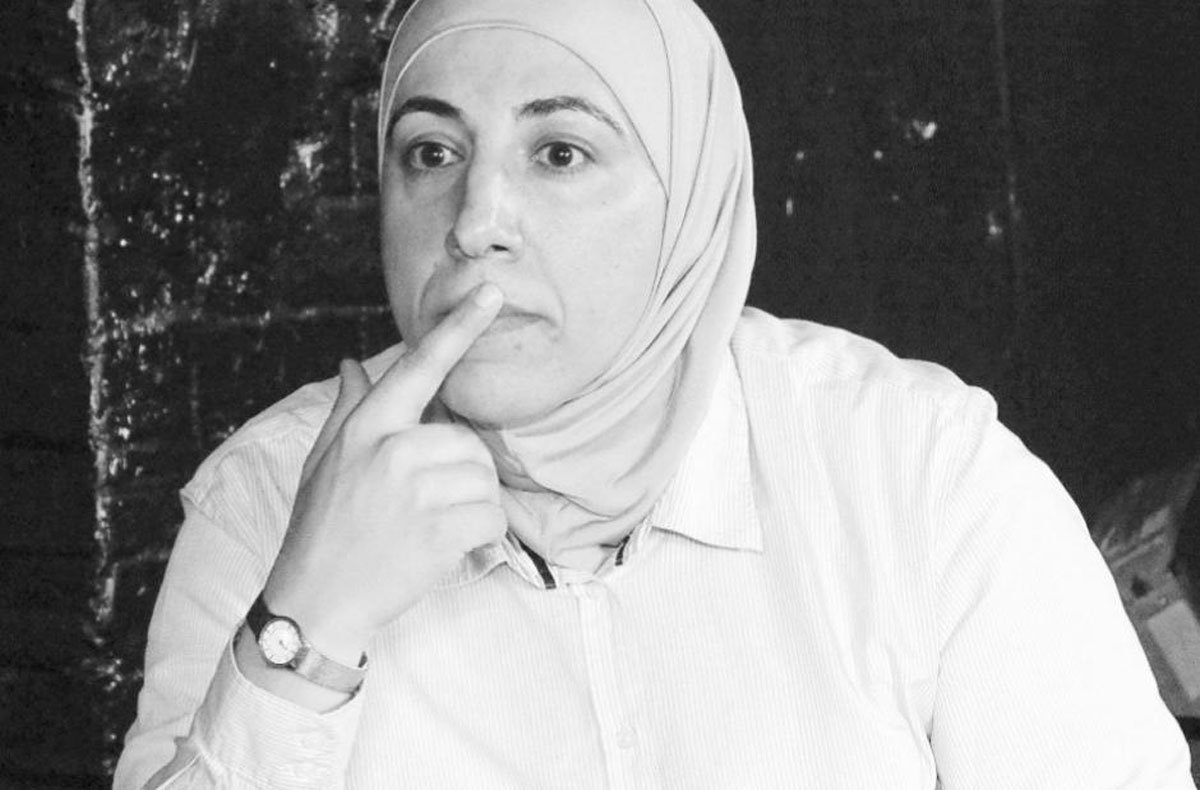

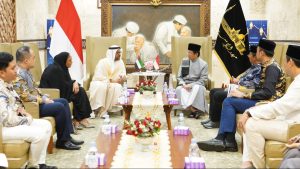
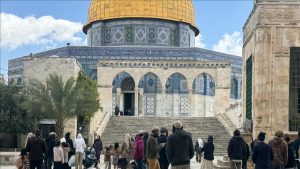
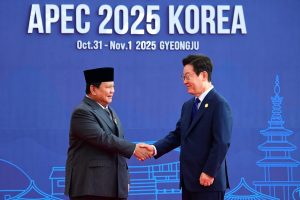
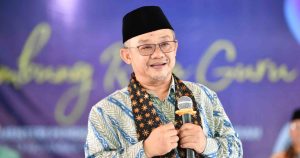
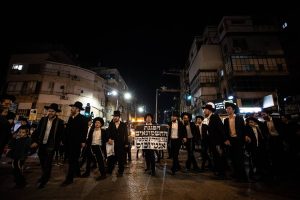
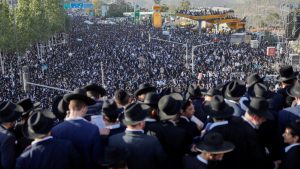
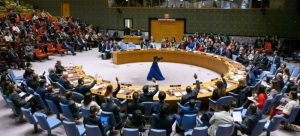
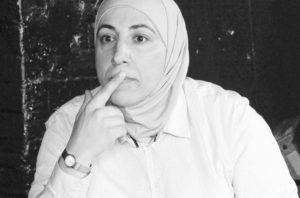



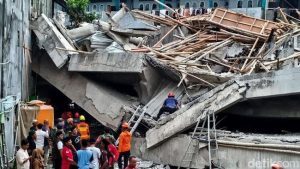



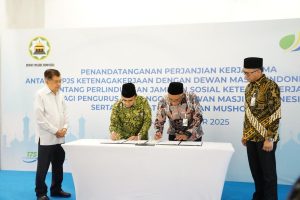
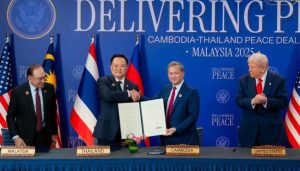
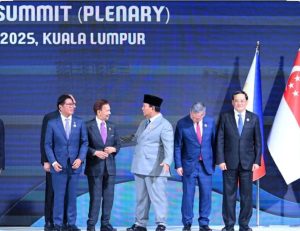
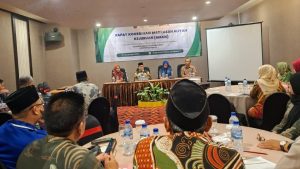
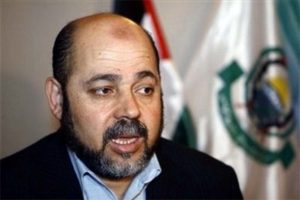
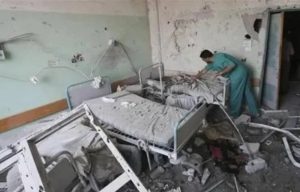



 Mina Indonesia
Mina Indonesia Mina Arabic
Mina Arabic